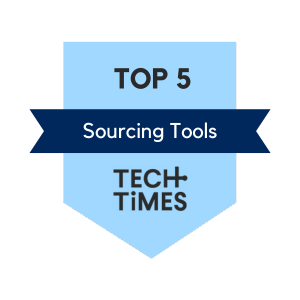Talent head hunting can be hard. With so many applications per vacancy, how can you be sure to find high quality candidates for your open role?
When looking to hunting the very top talent, recruiters need to consider more than experience and qualifications alone. Read article hidden talents unlocked.
Identifying values and motivations is one of the most effective ways to predict the future performance of candidates. Values are the characteristics of work that candidates find most important. Values can help to identify top talent based on fair and transparent measures. They also help recruiters to assess and grade large talent pools.
Here are 10 values and motivations beneficial in businesses and our top tips on how you can develop these to become a top talent.
Top 10 Values to consider in talent head hunting
1. Customer Experience
Customer experience is the impression customers have of a company throughout all aspects of the buyer’s journey. Customer experience takes place either through the product or interaction with the company. Does the product meet or exceed expectations? Is interaction with the company positive? And remember, interaction can take place through online interaction, during telephone calls, and via email.

Customer experience is crucial to all companies as a happy customer is likely to become a loyal customer. Loyal customers tend to stay longer, spend more and be valuable advocates to other potential customers.
Having this value means you focus on meeting customer expectations and are to customer concerns to provide a better customer experience. The first way to develop your customer experience skills is to find out more about what it means. There is a wealth of information online for general knowledge building.
2. Ownership
What’s the difference between ownership and accountability?
Ownership in the workplace is often confused with accountability. Accountability means taking responsibility for tasks, goals and expectations. Whereas ownership is a more intrinsic decision, a mindset. It’s about choosing to own your work, department goals and organizational objectives.
Ownership means you apply discretionary effort and always put 100% into a task. Ownership means treating the company, and its money, as though it’s your own.

Company’s value ownership as it increases employee performance improves decision making and enhances the customer experience. It also encourages creativity and innovation which drive a company forward. Employers consider ownership in their persona during the hunting stage.
3. Integrity
Integrity is doing the right thing, even when no one is watching – especially when no one is watching (C.S. Lewis). Integrity is demonstrated by:
- being honest, trustworthy and reliable.
- keeping your promises.
- admitting mistakes.
- remaining respectful during a conflict.
- following the rules.
- standing up for what’s right.
Companies value integrity because it builds trust and confidence, not only between colleagues and teams but also with customers and the general public. Trust, honesty and ethical behavior are increasingly important for company success as both employees and customers value these traits when making decisions. Headhunters are striving to find candidates having this integrity as part of their values and motivation. Employers consider integrity in their persona during the hunting stage.

You can build your integrity at work by delivering on promises such as work deadlines and appointments. Be honest and say ‘no’ if you cannot deliver. Admit when you’ve made mistakes and help to put them right. Learn from those you admire either in the workplace or in your personal life. You could find out more about public figures known for their integrity from books and documentaries.
4. Autonomy & Independence
What does an autonomous employee mean in the workplace?
Autonomy refers to how much freedom you have in the workplace. This could mean the freedom to choose your tasks, working hours or place of work. It could also be the opportunity to take ownership of a project.
Autonomy is valued by companies as it has a positive effect on wellbeing, job satisfaction and engagement. These lead to higher performing employees who are more productive, innovative and motivated. Companies also benefit from reduced employee absence and turnover.
The skills needed to be effective when working autonomously and independent include:
- Knowing what tasks you need to do
- Self-motivation
- Taking initiative rather than being told what to do
- Always delivering to the best of your ability
- Being 100% reliable
- Taking ownership of your mistakes
- Looking for improvement
- Making good decisions
To build autonomy skills you could ask your manager for small responsibilities to prove your ability. You could take more autonomy for your own personal development or activities/hobbies in your personal life.
5. Work-life Balance
Work-life balance refers to the prioritization between work and personal life. It relates to how much work activities are present in personal life, e.g. working at home in the evenings or checking email over the weekend. Successful work-life balance is considered the ability to work flexibly to be highly productive at work, whilst still having the time and energy to enjoy your personal life.

Savvy employers don’t want their staff to work long hours and burn themselves out. Successful companies know that supporting a good work-life balance results in more effective, productive and engaged employees. Companies that encourage a good work-life balance can boost their reputation to attract top talent and committed customers.
So how can you ensure you achieve a good work-life balance? Take responsibility for your own wellbeing and speak up if you feel under too much pressure and your performance is being affected. Work smart, not hard by prioritizing the most important tasks. Working on top priorities when you are most effective. Take regular breaks and try to separate your work-time from your leisure time. Develop hobbies and a good social circle so that you value and enjoy your personal time.
6. Ambition for Career Advancement
Gone are the days where people leave school, join a company and stay there until they retire. A ‘job for life’ has been replaced with individuals building their own path towards a meaningful and fulfilling career. On average people change jobs every 4 years. Career management skills are essential to understand what ambitions you have for career advancement and how to achieve your goals.

Ambitious employees are valued by companies as they often demonstrate high levels of creativity, innovation, performance and initiative. Successful companies recognize the needs of their ambitious employees and develop challenging and fulfilling career paths to extend the duration of their time with the organization.
You can develop your career management skills to set clear career goals. Share these with employers so they can support your ambitions. You need to plan your career goals, develop an action plan and regularly review progress. Show your desire for career advancement at work by showing continuous learning, volunteering for new projects, understanding business goals and contributing directly. Make use of regular appraisal reviews to seek development and new experiences.
7. Employees Engagement and Loyalty
When you are engaged in your employment, you are highly motivated, loyal and positive about your work. To feel engaged employees need to have a clear understanding of the overall organizational objectives and how their role fits into its success
Companies want engaged and loyal employees as positive attitudes and behaviors lead to improved business outcomes. Business benefits include improved reputation and customer experience, increased innovation and collaboration, reduced turnover and absence rates and improved productivity. Employers consider employee loyalty in their persona during the hunting stage.
You can boost your engagement with your company by finding out more about the overall goals and objectives. You can find this out by asking your manager or mentor or by seeking out information on the company internet or from annual reports. From there you can link your role to the bigger picture, maybe with help from your manager. Try to build relationships with your colleagues to feel like part of the team. Take on new tasks to increase your knowledge and build more relationships.
8. Continuous learning
Continuous learning is an ongoing process of increasing your ability to develop. It means seeking out new experiences and skills that may be related to your work, wider professional interests or personal life.
Companies value continuous learning as it ensures that employees keep up to date with changes in their industry, improve their effectiveness in their current role and are prepared for future roles and promotions. Continuous learning results in continuous improvement and change readiness, both are essential for companies to maintain their competitive advantage. Employers consider continuous learning in their persona during the hunting stage.
Continuous learning can take place through formal qualifications, training courses, or self-directed learning. On-the-job training such as project work, shadowing others, questioning and seeking feedback are also valuable ways to learn. It’s useful to identify your learning goals and devise a plan to meet your ambitions.
9. Diversity and Inclusion
This means working in a way that recognizes, understands and respects people’s differences. It means working inclusively to consider the value of different perspectives. Diversity and inclusion skills are important when working with colleagues, when communicating with customers and when developing or improving processes or products.

Companies seek to employ a diverse workforce to draw on a wide range of talent, experiences, perspectives and cultures. This results in diverse and innovative thinking and improved knowledge of a wider customer market. Companies who can demonstrate they value diversity and inclusion improve their reputation both in attracting the highest quality talent and customers.
Improving your diversity and inclusion skills starts with your own self-awareness. Understanding your own identity, assumptions and biases can be a difficult lesson. From there you can begin to understand how you perceive others. The identification of your biases then enables you to reflect on your beliefs and develop a more inclusive approach. You can complete an unconscious bias test online, such as the Harvard Implicit Association Test, as a good starting point. Lots of information is available online to understand more about diversity and challenge your assumptions.
10. Fun at Work
Fun and work are often not considered to go together. But having fun at work is important to individuals and companies. You are going to spend a lot of your time at work, so why not take steps to enjoy yourself.

For companies, employees who have fun at work are more productive, have higher performance, less stress, and greater innovation. Increased employee engagement results in a positive company reputation, an important factor when attracting top talent, particularly from the younger workforce. Employers consider fun at work in their persona during the early stage.
Here are some top tips on how to build fun into your workplace:
- Take time to figure out what aspects of work you enjoy and try to do more of this.
- Have hobbies and interests outside of work as this will give you an overall sense of happiness which can impact your work.
- Be proactive and set goals to motivate yourself.
- Listen to music while you work.
- Make some friendly competition with a colleague.
- Build relationships with colleagues.
- Take regular breaks including a walk in the fresh air.
- Vary your work location or decorate your desk differently.
- Break a task down into more manageable pieces to avoid feeling overwhelmed or stressed.
- Take pride in your work and always produce high-quality outputs.
Talentprise is an AI-driven candidate matching platform that incorporates an assessment of 12 values and motivations, and 12 traits and competencies. A unique ranking system based on 5 pillars: Education, Experience, Expertise, Skills, and Competencies. Streamlining the hiring process and making sure high-quality candidates can be found quickly. Good for recruiters and candidates alike.
Sign up for a Talentprise account today whether you are an active or passive candidate. Get immediate access to tremendous job opportunities worldwide.

Editorial Team
Our team is fueled by a passion for crafting valuable content that enriches the experiences of our users, customers, and visitors. We meticulously select meaningful and unbiased topics ranging from tips and guides to challenges and the latest in technology, trends, and job market insights. All curated with care and affection!








